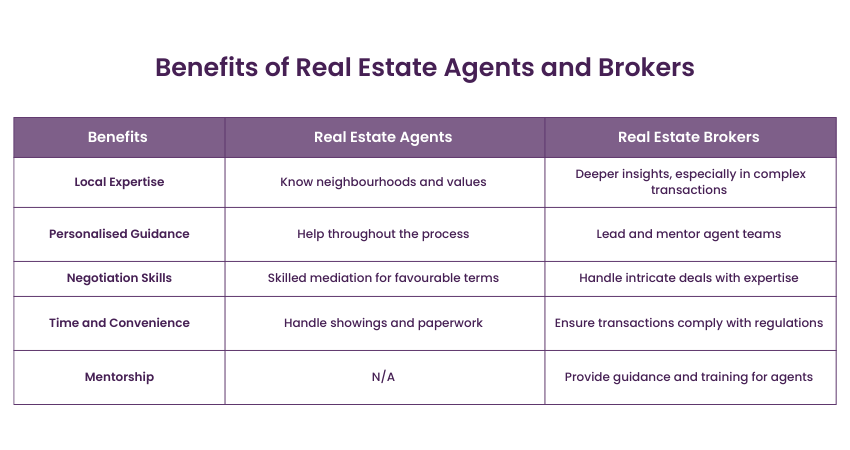When you’re buying or selling property for the first time, you’re bound to encounter a lot of confusing terms. One of the most common sources of confusion is the distinction between a property agent and a real estate agent. Are they the same thing? Do they serve different roles? And who should you trust with one of the biggest financial decisions of your life?
In this comprehensive guide, we break down the differences, similarities, roles, responsibilities, and qualifications of property agents vs. real estate agents. Whether you’re a buyer looking for your dream home or a seller trying to get top dollar for your property, understanding the differences can help you make smarter decisions and avoid costly mistakes.
Introduction to the Real Estate World
Before diving into the specifics of each role, it’s important to understand the structure of the real estate industry. The terms “property” and “real estate” are often used interchangeably, but they can have slightly different meanings depending on the context and region.
In general:
- Property refers to the physical asset—land, buildings, or both.
- Real estate refers to the broader industry involving buying, selling, managing, and investing in property.
Both property agents and real estate agents play critical roles in this system. Let’s explore how.
What is a Property Agent?
A property agent typically refers to someone who handles property-related services such as buying, selling, renting, or managing residential, commercial, or industrial properties. Their responsibilities can vary widely depending on the country, but they usually deal directly with property owners and tenants.
Responsibilities of a Property Agent
- Assisting landlords with listing properties for rent
- Helping tenants find rental properties
- Managing property viewings
- Handling lease agreements
- Collecting rent and managing maintenance
- Providing market analysis to property owners
Qualifications and Licensing
In many countries, property agents must hold a license from a regulatory board or real estate council. This typically involves passing a certification course, undergoing background checks, and fulfilling continuing education requirements.
Who Should Hire a Property Agent?
If you’re:
- A landlord who owns multiple rental units
- A tenant looking for a specific type of rental
- An investor seeking property management services
Then a property agent might be the right choice for you.
What is a Real Estate Agent?

A real estate agent is more commonly associated with buying and selling properties. In countries like the U.S., Canada, and Australia, real estate agents must work under a licensed real estate broker. They earn a commission for every property sold or purchased under their guidance.
Responsibilities of a Real Estate Agent
- Listing homes for sale
- Marketing properties through online and offline channels
- Guiding buyers through the home purchasing process
- Conducting open houses
- Negotiating offers and counter-offers
- Assisting with paperwork and closing procedures
Qualifications and Licensing
Real estate agents usually need to:
- Complete pre-licensing education
- Pass a real estate licensing exam
- Join a brokerage firm
- Adhere to legal and ethical standards set by a licensing body
Who Should Hire a Real Estate Agent?
If you’re:
- Buying your first home
- Selling a residential or commercial property
- Navigating a complicated property transaction
Then working with a real estate agent is likely your best bet.
Key Differences: Property Agent vs. Real Estate Agent
| Aspect | Property Agent | Real Estate Agent |
|---|---|---|
| Focus | Rentals and property management | Buying and selling property |
| Licensing | May vary by country; often less stringent | Usually requires formal education and a license |
| Common in | Asia, Europe | North America, Australia |
| Clients | Landlords, tenants, investors | Home buyers and sellers |
| Commission Structure | Monthly or annual fees | Commission on sale price |
These differences might seem subtle, but they matter a great deal depending on your needs.
Regional Terminology and Market Trends
In some parts of the world, “property agent” is the more commonly used term, while in others, “real estate agent” is standard. Let’s look at a few regional examples.
Asia
In countries like Singapore, Malaysia, and Hong Kong, the term property agent is more common. These professionals often work in rental-heavy markets and property management roles.
North America
In the U.S. and Canada, real estate agent is the preferred term. Most are affiliated with national organizations like the National Association of Realtors (NAR).
Europe
The terminology can vary—countries like the UK use estate agent, which often blends the roles of both property and real estate agents.
What About Realtors and Brokers?
Just to add another layer of complexity, let’s talk about Realtors and Brokers.
- A Realtor is a licensed real estate agent who is a member of the National Association of Realtors (U.S.). They adhere to a strict code of ethics and often carry more training.
- A Broker is someone who has taken additional education and licensing exams, allowing them to manage other agents or operate their own firm.
These titles don’t usually apply to property agents, making them unique to the real estate sales industry.
Skills to Look for in Both Agents
Regardless of the title, here are key traits to look for in an agent:
- Communication skills: Clear, prompt communication is vital.
- Market knowledge: They should understand pricing, trends, and neighborhood dynamics.
- Negotiation expertise: A skilled agent can save you thousands—or make you thousands.
- Integrity: Honesty and ethics are non-negotiable.
- Organization: Property transactions involve lots of moving parts; your agent should be on top of them.
Commission and Costs: What You’ll Pay
Understanding how each type of agent gets paid can help you make smarter financial decisions.
Property Agent Fees
- Rental commission: Typically 1 month’s rent or a percentage of annual rent
- Management fee: Monthly percentage (usually 5–10%) of the rent collected
- Other fees: Maintenance coordination, lease renewals, etc.
Real Estate Agent Commission
- Typically 5–6% of the sale price (split between buyer’s and seller’s agents)
- Paid only when a transaction closes
- Can sometimes be negotiated
Working With Both: Can You?
Absolutely! In fact, for large or complex property transactions, working with both types of professionals might be a smart move.
For example:
- A property agent can help manage your rental investments after purchase.
- A real estate agent can help you buy or sell the property in the first place.
Pros and Cons: Property Agent
Pros:
- Specialized in rental markets
- Ongoing management services
- Cost-effective for landlords
Cons:
- May not be licensed to conduct sales
- Narrower scope of service
Pros and Cons: Real Estate Agent
Pros:
- Great for buying/selling
- Legally qualified
- Strong marketing and negotiation support
Cons:
- No post-sale property management
- Commission-based fees may be higher
Real-World Scenarios: Who Should You Hire?
Let’s look at some common scenarios to help you decide.
Scenario 1: First-Time Home Buyer
Best Choice: Real estate agent
You’ll need someone to guide you through listings, showings, financing, and closing.
Scenario 2: Landlord with 10 Apartments
Best Choice: Property agent
You’ll benefit from someone who can manage leases, collect rent, and coordinate maintenance.
Scenario 3: Selling Your Inherited Property
Best Choice: Real estate agent
Selling a home involves legal paperwork, price negotiations, and marketing—exactly what real estate agents are trained for.
Scenario 4: Tenant Searching for a Rental
Best Choice: Property agent
They have access to current rental listings and can help speed up your search.
Tips for Choosing the Right Agent
- Ask for Referrals: Friends and family are great sources.
- Check Credentials: Make sure they’re licensed and experienced.
- Read Reviews: Look at online feedback and testimonials.
- Interview Multiple Agents: Don’t settle for the first one you meet.
- Get Everything in Writing: Fees, services, timelines—document everything.
The Future of Property and Real Estate Agents
Technology is rapidly changing how agents operate. Here are some trends to watch:
- Virtual tours: Especially popular post-pandemic.
- AI-powered platforms: Help match buyers and sellers faster.
- Blockchain in property transactions: Promises secure, transparent deals.
- Online-only agencies: Reduce overhead and pass savings to clients.
Despite the tech evolution, the human touch of a knowledgeable agent remains irreplaceable.
Make an Informed Choice
In the “Property Agent vs. Real Estate Agent” debate, there’s no one-size-fits-all answer. The right professional depends on your goals, whether you’re buying, selling, renting, or managing property.
To recap:
- Choose a real estate agent for buying and selling.
- Choose a property agent for rentals and ongoing management.
- For large portfolios or complex deals, consider hiring both.
By understanding their roles and responsibilities, you can confidently choose the right expert and ensure a smoother real estate experience.

